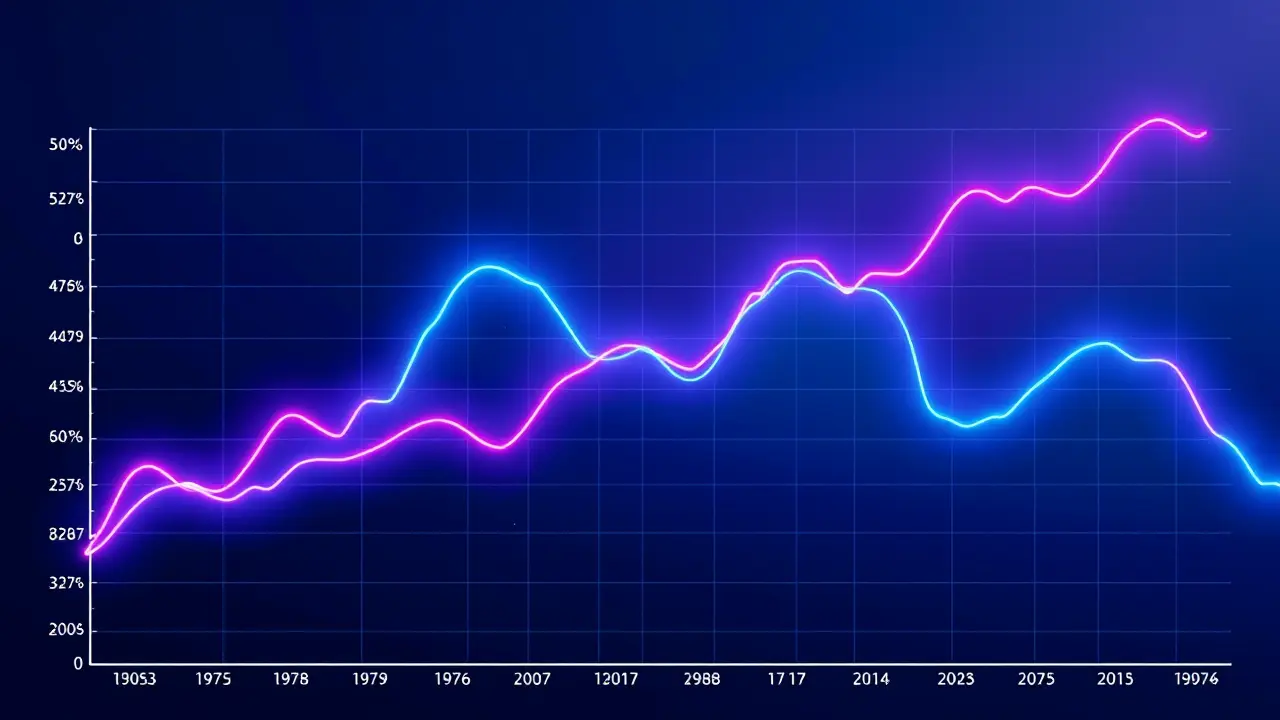
Financestocks
Philippine Regulators Address World's Worst Performing Stock Market
OL
Olivia Scott
11 hours ago7 min read
The Philippine Stock Exchange Index’s descent into the unenviable position of the world's worst-performing equity market this year is not merely a statistical blip on a global trader's screen; it is the gut-wrenching reality for thousands of domestic investors like Manila-based lawyer Carl Edison Balagtas, who for a decade faithfully channeled half his monthly salary into local shares only to watch his meticulously constructed retirement vehicle sputter and stall, a stark lesson in how macroeconomic headwinds and geopolitical anxieties can eviscerate even the most disciplined, long-horizon investment strategy. This profound underperformance, with the PSEi shedding a staggering portion of its value while peers in Southeast Asia and beyond rallied, has finally compelled a concerted response from the Securities and Exchange Commission and the Philippine Stock Exchange itself, regulators now publicly grappling with a crisis of confidence that intertwines stubbornly high inflation, soaring interest rates engineered by the Bangko Sentral ng Pilipinas to combat it, and a pervasive sense of political instability that has foreign capital fleeing for safer harbors.The narrative of Balagtas—a modern-day cautionary tale of perseverance meeting misfortune—is emblematic of a broader national sentiment, where the traditional buy-and-hold philosophy championed by icons like Warren Buffett collapses under the weight of recurrent fiscal deficits, a persistently weak peso that magnifies losses for foreign investors, and a corporate earnings season consistently failing to meet elevated expectations, leaving the market trapped in a vicious cycle of selling pressure and evaporating liquidity. In response, regulators are reportedly drafting a multi-pronged offensive that includes fast-tracking the listing of state-owned enterprises to inject fresh momentum, simplifying the often-cumbersome process for initial public offerings to attract a new wave of innovative companies, and launching a nationwide financial literacy campaign aimed at reassuring a retail investor base that constitutes a significant portion of market volume but is now dangerously close to capitulation.The stakes could not be higher; a prolonged bear market threatens to undermine the very foundations of the nation's capital formation ecosystem, deterring the domestic and international investment crucial for funding the massive infrastructure projects that form the backbone of the government's economic agenda, potentially creating a feedback loop of stalled growth and further market declines. Analysts from firms like COL Financial and AP Securities note that while external factors like a strong U.S. dollar and elevated global bond yields have punished emerging markets universally, the Philippines suffers from unique domestic scars, including an over-reliance on a few legacy conglomerates whose fortunes are tightly hitched to consumer spending that is now being crushed by inflation, and a political landscape that continues to generate uncertainty, deterring the patient, value-oriented foreign institutional capital that once flowed freely.The regulatory intervention, therefore, is a high-wire act of restoring faith without resorting to market-distorting props, a challenge akin to that faced by other historically weak markets, yet the Philippine context is uniquely pressurized by its demographic reality—a young, growing population whose aspirations for financial security are being systematically undermined by a failing stock market, turning potential long-term bulls into a generation wary of equities, a psychological shift that could take years to reverse even if the macroeconomic clouds part tomorrow. The ultimate success of Manila's financial authorities will be measured not by a temporary index bounce, but by whether they can convince the next Carl Edison Balagtas that the market remains a viable engine for wealth creation, a task requiring not just regulatory tweaks but a fundamental restoration of trust in the nation's economic trajectory.
#featured
#Philippine stock market
#investment performance
#market regulation
#personal finance
#worst performing
#emerging markets
#investor sentiment
Stay Informed. Act Smarter.
Get weekly highlights, major headlines, and expert insights — then put your knowledge to work in our live prediction markets.
Related News
© 2025 Outpoll Service LTD. All rights reserved.














